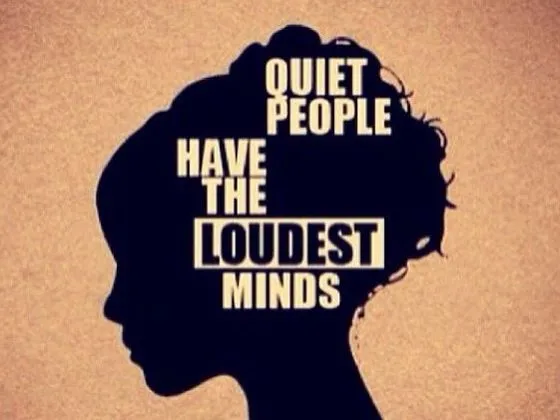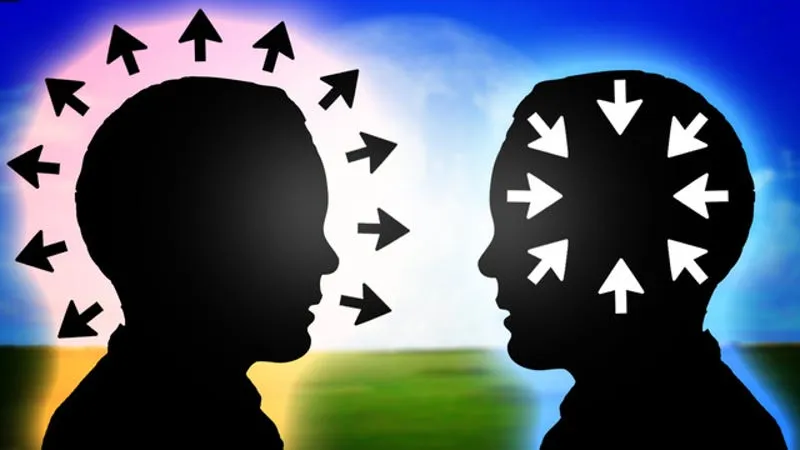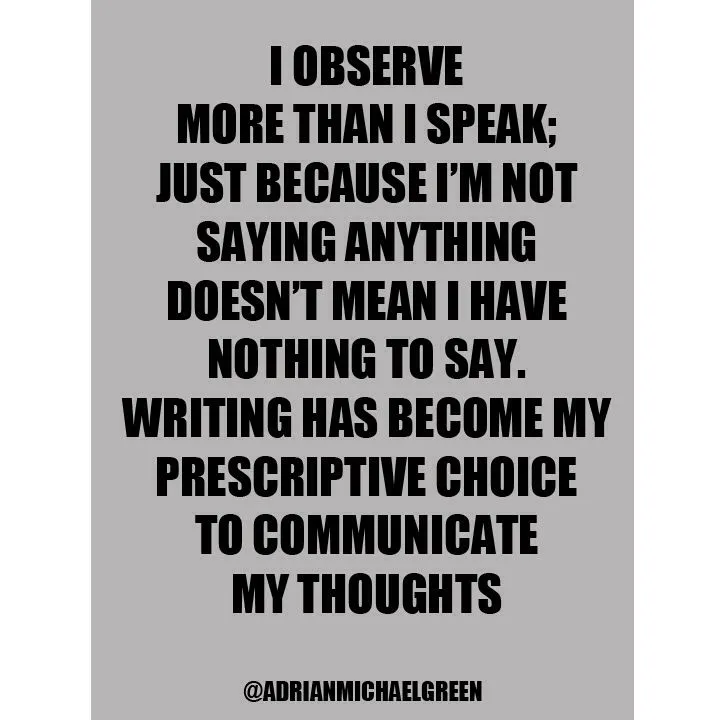Understanding And Learning The Ways of An Introverts

Image Source
Do you know somebody who needs hours alone consistently? Who cherishes calm discussions about sentiments or thoughts, and can give an explosive introduction to a major crowd, yet appears to be unbalanced in gatherings and ungainly at casual discussion? Who hosts to be dragged to gatherings and after that needs whatever remains of the day to recover? Who snarls or glares or snorts or recoils when hailed with merriments by individuals who are quite recently attempting to be pleasant?
Provided that this is true, do you tell this individual he is "excessively genuine," or inquire as to whether he is alright? See him as standoffish, presumptuous, impolite? Try harder to coax him out?
On the off chance that you addressed yes to these inquiries, odds are that you have an introvert staring you in the face—and that you aren't administering to him legitimately. Science has taken in a decent arrangement as of late about the propensities and necessities of introverts. It has even learned, by methods for cerebrum checks, that introverts procedure data uniquely in contrast to other individuals (I am not making this up). In the event that you are sub-par on this essential matter, be consoled that you are not the only one. Introverts might be normal, yet they are likewise among the most misjudged and wronged gatherings of individuals.
What is introversion?
In its present day sense, the idea backpedals to the 1920s and the clinician Carl Jung. Today it is a pillar of identity tests, including the generally utilized Myers-Briggs Type Indicator. Introverts are not really modest. Timid individuals are restless or panicked or self-abrading in social settings; introverts for the most part are definitely not. Introverts are likewise not pessimistic, however a few of us do oblige Sartre to the extent to state "Hellfire is other individuals at breakfast." Rather, introverts are individuals who find other individuals tiring.

Image Source
Extroverts are stimulated by individuals, and shrivel or blur when alone. They regularly appear to be exhausted independent from anyone else, in both faculties of the expression. Allow an extrovert to sit unbothered for two minutes and he will go after his PDA. Conversely, following a hour or two of being socially "on," we introverts need to kill and revive. My own recipe is approximately two hours alone for each hour of mingling. This isn't withdrawn. It isn't an indication of dejection. It doesn't call for prescription. For introverts, to be separated from everyone else with our considerations is as helpful as dozing, as supporting as eating. Our aphorism: "I'm alright, you're alright—in little dosages."
Are introverts misjudged?
It is exceptionally troublesome for an extrovert to comprehend an introvert, compose the training specialists Jill D. Burruss and Lisa Kaenzig. Extroverts are simple for introverts to comprehend, in light of the fact that extroverts invest such a large amount of their energy working out their identity in voluble, and as often as possible inevitable, cooperation with other individuals. They are as incomprehensible as puppy canines. In any case, the road does not run both ways. Extroverts have practically no grip of introversion. They accept that organization, particularly their own, is constantly welcome. They can't envision why somebody would should be distant from everyone else; for sure, they regularly dislike the proposal. As frequently as I have attempted to disclose the matter to extroverts, I have never detected that any of them truly caught on. They tune in for a minute and afterward backpedal to yelping and howling.
Are introverts mistreated?
I would need to say as much. For a certain something, extroverts are overrepresented in governmental issues, a calling in which just the talkative are truly agreeable. Take a gander at George W. Shrub. Take a gander at Bill Clinton. They appear to come completely to life just around other individuals. To think about the few introverts who rose to the top in governmental issues—Calvin Coolidge, Richard Nixon—is just to commute home the point. With the conceivable special case of Ronald Reagan, whose mythical lack of approachability and privateness were most likely indications of a profound introverted streak, introverts are not considered "naturals" in legislative issues.

Image Source
Extroverts along these lines command open life. This is a pity. On the off chance that we introverts ran the world, it would most likely be a more settled, saner, more quiet kind of place. As Coolidge should have stated, "Don't you realize that four fifths of every one of our inconveniences in this life would vanish in the event that we would simply take a seat keep still?"
With their interminable craving for talk and consideration, extroverts likewise overwhelm social life, so they tend to set desires. In our extrovertist society, being active is viewed as typical and accordingly alluring, a sign of bliss, certainty, administration. Extroverts are viewed as bighearted, dynamic, warm, empathic. "Social butterfly" is a compliment. Introverts are depicted with words like "watched," "maverick," "saved," "unsocial," "independent," "private"— thin, ungenerous words, words that recommend enthusiastic stinginess and littleness of identity. Female introverts, I think, must endure particularly. In specific circles, especially in the Midwest, a man can at present at times escape with being what they used to call a solid and quiet sort; introverted ladies, without that option, are significantly more probable than men to be seen as hesitant, pulled back, haughty.
Are introverts haughty?
I assume this basic misinterpretation needs to do with our being more canny, more intelligent, more free, more prudent, more refined, and more touchy than extroverts. Likewise, it is most likely because of our absence of casual discussion, a do not have that extroverts frequently mix up for abhor. We tend to think before talking, though extroverts tend to think by talking, which is the reason their gatherings never last under six hours. "Introverts," composes a keen individual named Thomas P. Crouser, in an online audit of a current book called Why Should Extroverts Make All the Money? are headed to diversion by the semi-inner exchange extroverts tend to direct. Introverts don't ostensibly gripe, rather feign exacerbation and quietly revile the haziness.
The most exceedingly awful of it is that extroverts have no clue about the torment they put us through. Some of the time, as we wheeze for air in the midst of the mist of their 98 percent without content talk, we think about whether extroverts significantly try to hear themselves out. Still, we persist stoically, in light of the fact that the manners books composed, doubtlessly, by extroverts—see declining to chitchat as discourteous and holes in discussion as clumsy. We can just dream that sometime in the future, when our condition is all the more broadly comprehended, when maybe an Introverts' Rights development has bloomed and borne natural product, it won't be rude to state "I'm an introvert. You are a superb individual and I like you. Be that as it may, now please shush."
How might I give the introvert access my life realize that I bolster him and regard his decision? To begin with, perceive that it's not a decision. It's not a way of life. It's an introduction. Second, when you see an introvert out to lunch, don't state "What's the matter?" or "Are all of you right?" Third, don't state whatever else, either.

Image Source